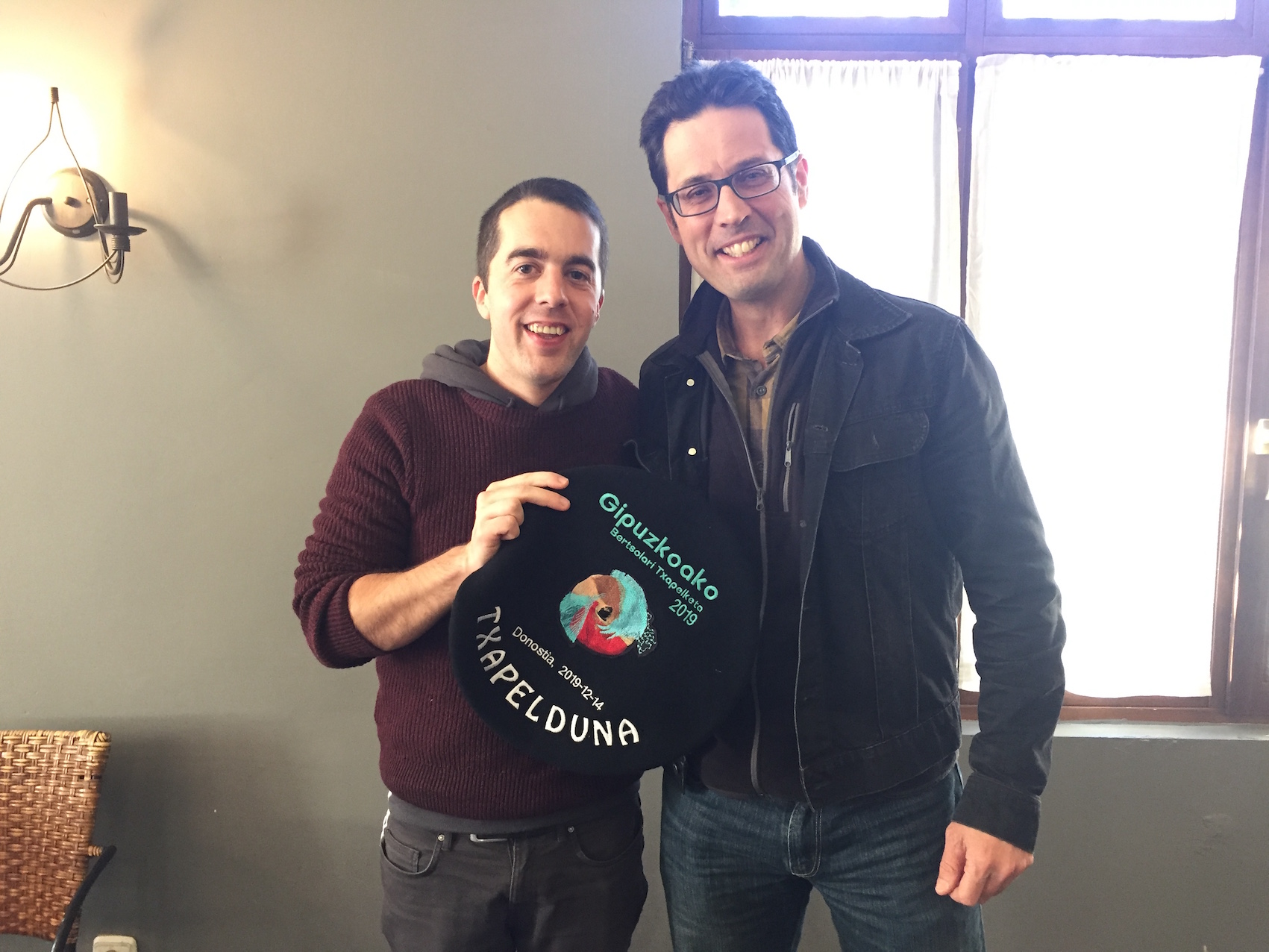
Wearing greatness lightly: Beñat Gaztelumendi (left) with the author.
In a culture so often dominated not just by winning, but also those other prized skills of ‘owning’, trolling and tooting your own horn, it’s refreshing to find a radically different mindset. I was recently lucky enough to visit Donostia, where eight locals were competing in the Gipuzkoa provincial final of Berstolarismo.
Bertsolarismo is an ancient tradition in Basque-speaking areas, in which verses of poetry are created on the spot and recited, to a melody, before an audience. After almost disappearing during the dictatorship, it has made a remarkable comeback in recent decades, to the extent that 6,000 people attended the Gipuzkoa final in a sports arena.
As a non-Euskera speaker, the linguistic subtleties passed me by throughout the five hours of competition. But what struck me was the comradeship between the competitors, who clapped each other, chatted and sang along to each other’s verses. When the final results were announced, ranking the participants from first down to eighth, there were no histrionics and no tears, either of joy or disappointment. Instead, each berstolari took turns to sing a final verse as a farewell.
The winner, Beñat Gaztelumendi, could barely have been more unassuming. When I met him afterwards and asked him about this collective approach to the art, he mentioned the fact that a football match had been taking place just a couple of hundred yards away from the competition, between Barcelona and local side Real Sociedad. Beñat and a fellow competitor had watched the teams arrive.
“Real Sociedad’s coach arrived and people were clapping and cheering and then Barca’s coach arrived a couple of minutes later and people started booing and jeering,” he said. “And we thought: ‘Wow. These guys are going to compete with each other, but it’s so different to us.’ We want the person we are up against to perform well, to help us, to open the path up, so we can continue along that path.”
As well as playing down its competitiveness he was also keen to demystify bertsolarismo, which can look so intimidating to the outsider. Strict parameters mean that the improvised verses must contain a certain number of lines and each line a certain number of syllables. Also, the judges reward complex rhyming schemes. Try keeping that in your head as you perform before a live audience.
“A lot of people believed that bertsolaris were born with a special talent, that they were chosen ones and only these chosen ones could sing,” Beñat told me. “That’s not true. Anyone can learn to sing verses up to a certain level. It’s very useful to help people learning Euskera or working on their self-esteem. Beyond that, it’s like being a football player. We can all learn to play football, but there’s only one Messi.”
0 Comments